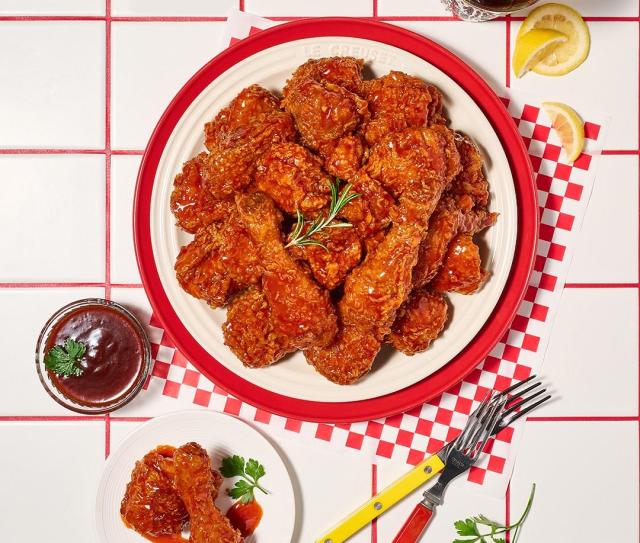
Catering to a growing number of health-conscious consumers, the market witnessed an explosive growth in recent years. Experts predict further expansion as technological advancements enable a wider variety of low and no-sugar options while maintaining tastes close to their sugary counterparts.
"As incident rates of diabetes, overweight and obesity are rising worldwide, the market for zero-sugar food and beverages is growing at an average annual rate of more than 4 percent,” Kim Wan-sik, CEO of Chicken Plus, told Aju Press.
The medium-sized chicken franchise charged into the market in December by introducing a sugar-free version of seasoned fried chicken. The company reformulated the food with allulose, a natural fig sweetener.
The Zero Sugar Seasoned Chicken is gaining popularity, particularly among people with health issues who must control their sugar intake but still crave one of the country's most beloved foods, he said.
Parents concerned about their children's excessive consumption of sweets also constitute a large portion of its clientele.
"The zero-sugar chicken is drawing steady interest from ‘healthy pleasure’ consumers in their 20s and 30s,” Kim said.
The entrepreneur was referring to the latest trend among younger generations of pursuing physically and mentally healthy lifestyles, which is shaking up an array of consumer markets from food to fashion and leisure.
A member of the “healthy pleasure” clan, Kim Hyun-woo strikes a balance between the sweet tooth and wellness with the help of high-quality sugar-free soft drinks.
"I often drink zero-sugar beverages for blood sugar control and dental health," the 29-year-old engineer said.
"The textures are even better, as there's no sticky feeling left in the mouth. And there's not much difference compared to sugar-added foods," he added.
The demand for low-sugar formulations is on the rise as health risks associated with high sugar intake increasingly resonate with consumers.
Government data from 2022 showed that as of 2020, one in six Koreans over 30 were suffering from diabetes, with the prevalence rate steadily increasing from 13.8 percent in 2018 to 14.5 percent in 2019 and to 16.7 percent in 2020.
As of 2022, one in three Korean adults was found to be obese, according to statistics from the Korea Disease Control and Prevention Agency. Obesity rate among men and women was 47.7 percent and 25.7 percent, respectively.
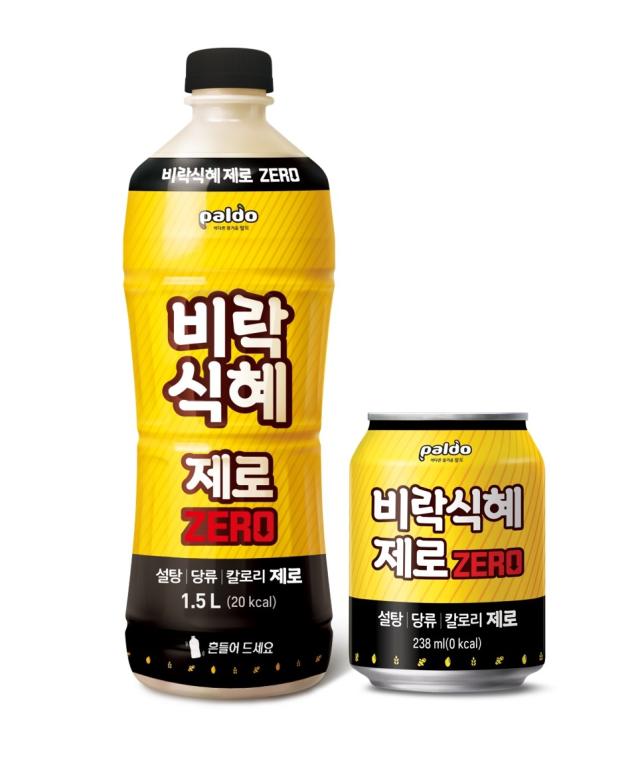
Reducing sugar from the beverage has been considered especially tricky due to its rice base. After yearlong efforts, Paldo engineers successfully developed a process to eliminate sugar and carbohydrates from rice.
According to the Ministry of Food and Drug Safety's criteria, foods with fewer than 4 kcal per 100ml can be labeled "zero calories" and 40 kcal per 100g or 20 kcal per 100ml can be marked with "low calories."
Paldo’s low-calorie Virac Sikhye is priced competitively at 192 won ($0.14) per 100ml, cheaper than regular products which cost 222 won per 100ml on Coupang, the country's biggest e-commerce platform.
The product successfully attracted youngsters increasingly obsessed with health and weight. "And there was also an influx of customers over 40 who previously had to keep away from sikhye due to sugar concerns," the company told Aju Press.
The sugar-free variant of Korea’s traditional rice cakes also commands popularity across demographics. A company based in the eastern city of Wonju released zero-sugar rice cakes using stevia, a natural sweetener, last year.
"Sales of the zero-sugar rice cakes nearly quadrupled to some 80 million won now from between 10 million won and 20 million won in early 2023," said Won Chi-jun, CEO of the company whose name translates into Five Blessings Rice Cake.
"We receive tons of good feedback from customers amid growing interest from Healthy Pleasure people."
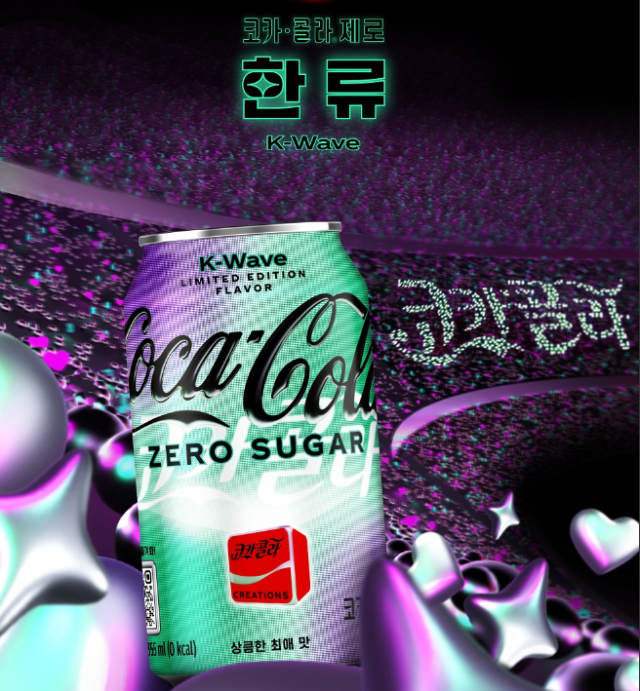
Korea’s zero-sugar food market has been led by soft drinks since Coca Cola Zero Sugar was released in 2006.
According to Euromonitor, a market research firm, the market for low-sugar carbonated beverages has shown exponential growth, increasing by 7.84 times over the past five years, rising from 163 billion won in 2018 to 1.278 trillion won in 2023.
The global market is expected to reach $243.5 billion in 2030 from $125.3 billion in 2020, marking 7.3 percent growth per year, according to the Korea Trade-Investment Promotion Agency.
Building on its success, the Coca-Cola Company expanded its zero-sugar lineup to K-pop in February, releasing Coca-Cola K-Wave Zero Sugar. Korea’s Lotte Chilsung Beverage joined the competition with its Pepsi Zero Sugar in January 2021. By February 2024, the company had sold some 2 billion cans of the product. Zero-sugar drinks accounted for 20 percent of Lotte Chilsung's total sales from January to July 2023, doubling from the previous year.

Liquor is another major driver of the market’s growth. HiteJinro, a leading drink, brewing and distiller company, released Jinro Gold, a new zero-sugar variant of soju, or Korean distilled alcoholic beverage, in March.
The Korean soju market is already booming with low-calorie options, which accounted for 7.9 percent of the total market in 2023, rising from 0.9 percent of the previous year.
The growth contributed to HiteJinro’s increased market share, which rose to 20.7 percent from 16.6 percent during the same period. Its rival Lotte Chilsung Beverage's sales of zero-sugar soju in the first quarter of 2024 was 37.7 billion won, accounting for more than 30 percent of the total, which was 90.5 billion won.
Hangover cures featuring fewer calories, including the sugar-free version of Easy Tomorrow, are also available at convenience stores.
Low-sugar liquor products are largely well received by consumers.
"For me, zero-sugar soju just tastes the same as the existing ones," a-28-year old AI researcher, Wang Sung-jun, said. "The differences are ignorable as soju has its unique bitter taste."
“Jinro Gold is way softer than the existing offerings and doesn’t have soju’s unique smell of alcohol,” a 29-year-old marketer Lim Do-hee said. “I’m a huge fan of sugar-free products as I always try not to be overweight.”
The low-sugar craze is sweeping various other food categories, including ice creams. Last month, Lotte Wellfood launched a zero-sugar version of Jaws and Screw bar, the country's beloved ice cream for over three decades. Sales of the two products spiked to 7.2 million bars per month, more than double the initially expected 3.2 million.
But sweeteners also come with their own health risks. In a guideline issued in May 2023, the World Health Organization (WHO) recommended against the use of non-sugar sweeteners (NSS), saying it does not confer any long-term benefit in reducing body fat in adults or children.
The report also suggested that there may be potential undesirable effects from long-term use of NSS, such as an increased risk of type 2 diabetes, cardiovascular diseases, and mortality in adults.
Copyright ⓒ Aju Press All rights reserved.

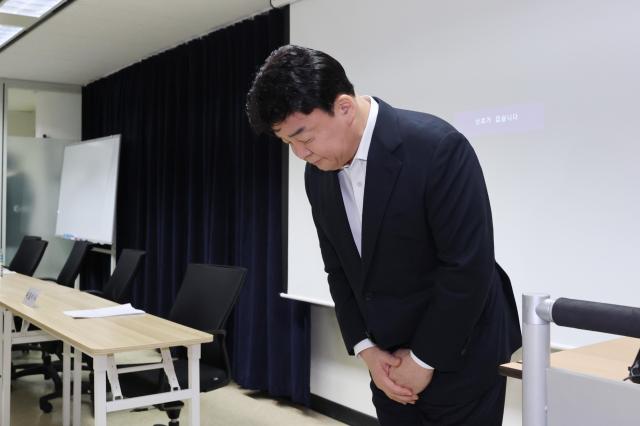
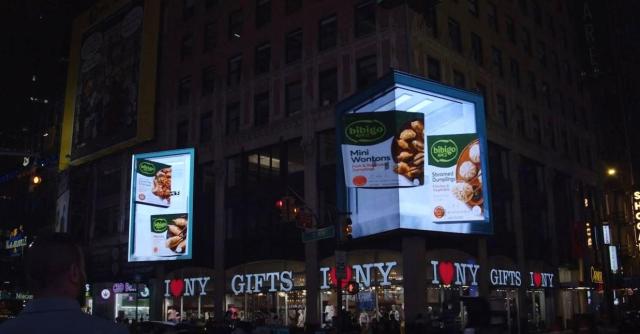
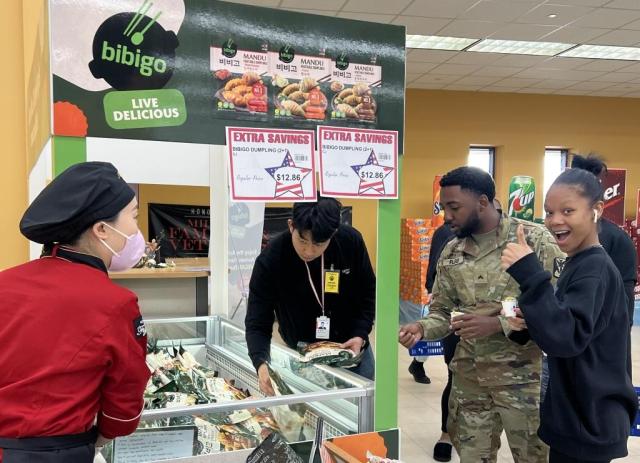
View more comments